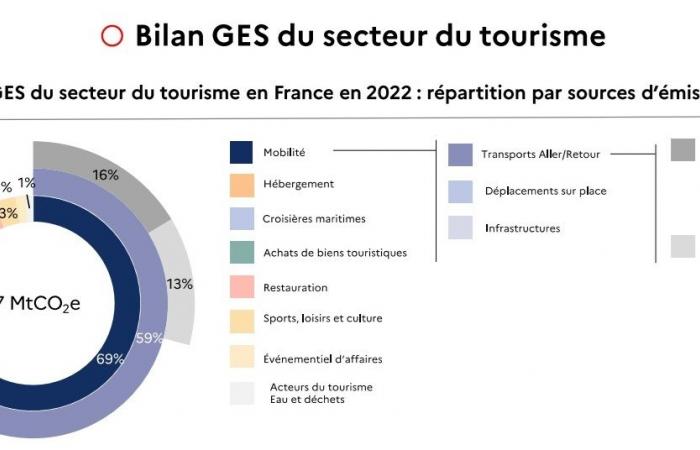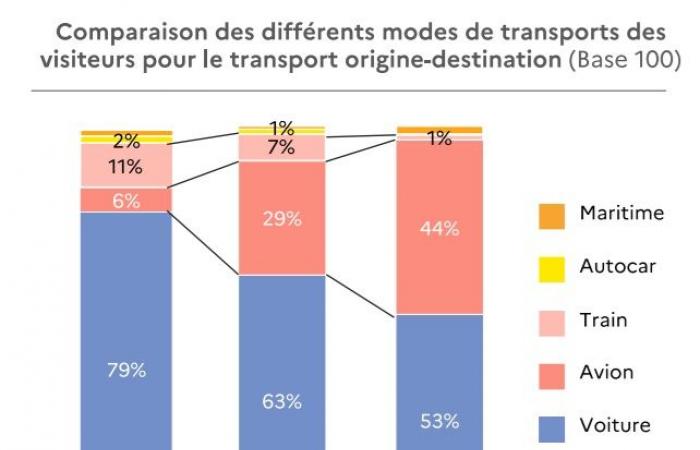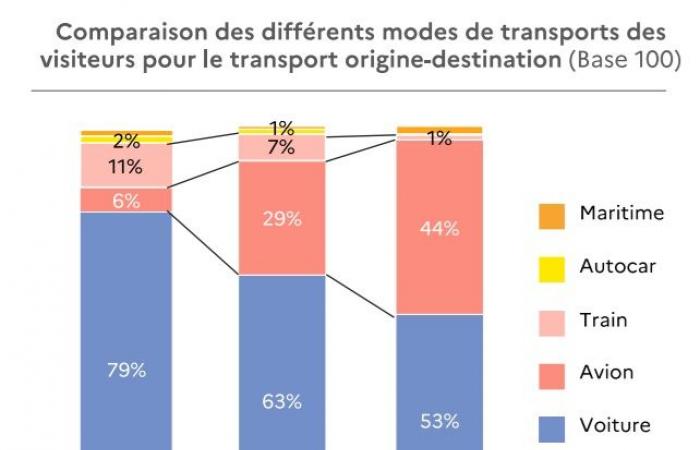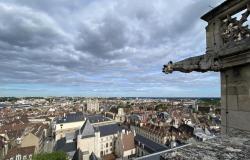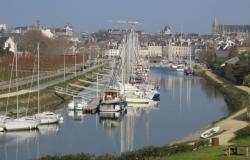Ademe publishes a major study (82 pages) on greenhouse gas (GHG) emissions from tourism 2022. Result: the sector emitted 97 million tonnes of CO2 equivalent in 2022, compared to 115 million tonnes in 2018. The carbon footprint thus drops by 16% compared to the first study. “Which is not negligible,” François Potin, project manager for the carbon footprint of tourism at Ademe, commented to us during the recent Sustainable Tourism Universities in Bordeaux.
To illustrate the carbon footprint of French tourism, there is nothing like a comparison: the 97 million tonnes of CO2 are equivalent to the annual carbon footprint of 10 million French people (14% of the French population). These are also 11% of France’s overall GHG emissions.
An ambitious trajectory
As always, a methodological point is essential: the study focuses on incoming tourism. People who visit French territory including overseas territories are taken into account, whether they come from France or abroad. And therefore the results do not include French travel to foreign destinations.
The 16% reduction is “aligned” with the trajectory of the Paris Agreement and the National Low Carbon Strategy (SNBC), also underlines François Potin.
“To be aligned with the Paris Agreement, the tourism sector must reduce its GHG emissions by 40% to 50% in absolute terms by 2030, compared to 2008,” the study also recalls.
How to explain the 16% decline in GHGs?
Considering the 16% decline in GHGs in four years, we should not, however, be jubilant… “The decline is mainly due to a shift from distant tourism to closer tourism. It is indeed above all a cyclical decline,” comments François Potin. American and especially Asian customers still remained largely behind in 2022, following the pandemic. And France had received, proportionately, more European visitors than before the pandemic. “Today, it is not certain that the reduction of greenhouse gases is still relevant. If we want the decline to continue, structural changes are needed. »
The Olympic and Paralympic Games, which have attracted distant clienteles, risk having “a significant weight in the balance sheet of emissions for 2024, recognizes Ademe.
But François Potin positive. “What is very interesting is the maintenance of the economic benefits of incoming tourism, at 7% of GDP in 2022 as in 2018, despite the drop in GHGs. The gross value of the economic contribution also remained stable, at 180 billion euros. » Except that the maintenance of revenues certainly comes from the high inflation which existed between 2018 and 2022…
Looking for local tourists?
In any case, for the Ademe expert, “finding tourists less far away is the main lever for decarbonizing. It is difficult to do otherwise. » Except that it is difficult to imagine the government giving up on high-contributing clienteles…
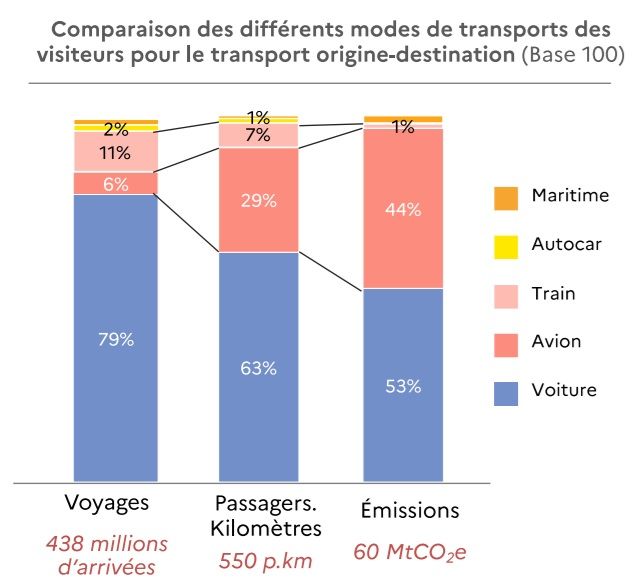
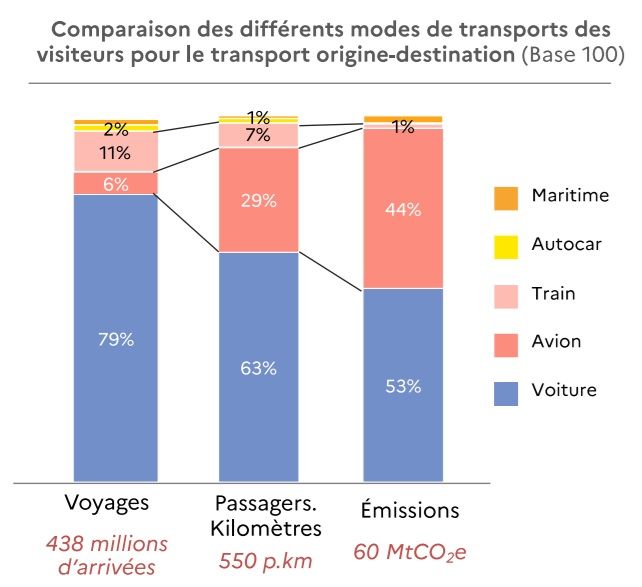 Unsurprisingly, the study reveals that non-European visitors emit three times more CO2 per night than a visitor from Europe. The distance and the majority recourse to the plane amply explain this.
Unsurprisingly, the study reveals that non-European visitors emit three times more CO2 per night than a visitor from Europe. The distance and the majority recourse to the plane amply explain this.
Overall, transport remains predominant with 69% of the 97 million tonnes, compared to 75% in 2018. The plane represents 44% of tourist mobility emissions, the car 53%.
What about French tourism abroad?
In the appendix, Ademe looked at “emissive tourism” in order to assess the GHG impact of French travel abroad.
In total, the French made 337 million stays in 2022, 89% in France. An activity which represents 70 million tonnes of CO2.
And stays abroad (known as “emissive tourism”) represent 11% of total stays, but 38% of GHG emissions. In other words, stays in mainland France and overseas account for 89% of stays, and 62% of GHG.


